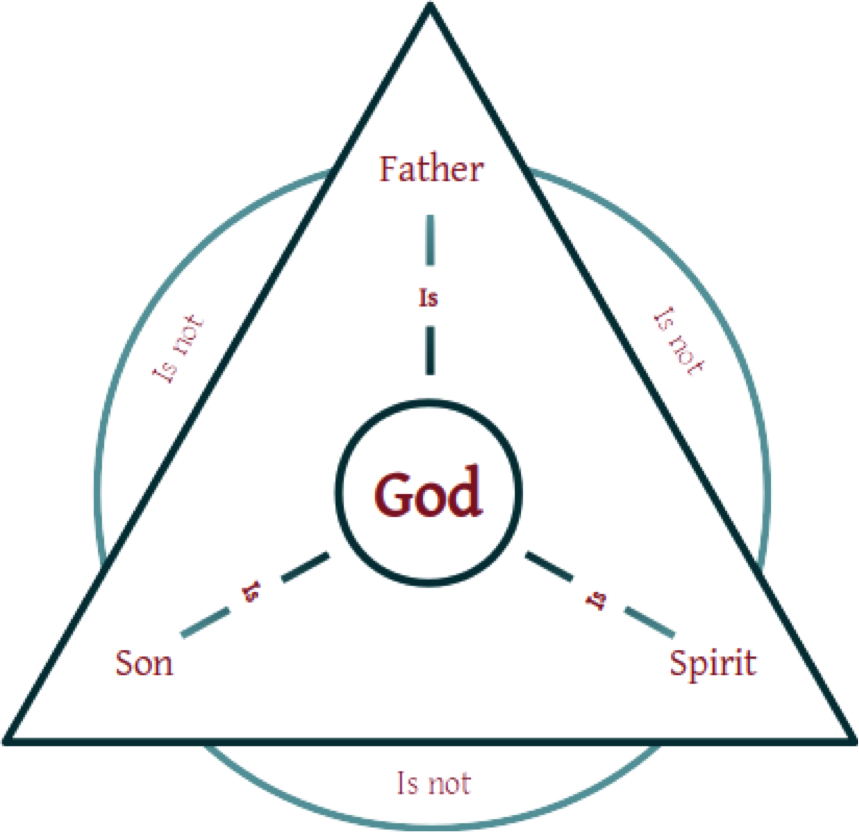Articles about Biblical Studies
I am responding to those who asked questions and made pertinent comments about my previous post on ACV’s Facebook page. I do not have a Facebook account and was not able to respond on that platform. ..If faith is genuine and saving then when it is presented with the truth of Christ being the Great I Am, who, as the Word, became flesh, in order to save sinners, such faith will welcome this glorious truth and not oppose it.
I am writing this as an appeal to my fellow Advent Christians who personally hold to the full deity and humanity of Christ in his one person but who do not want to challenge those in our ranks who have no conviction regarding this teaching or who actually oppose it. Before I make the particular appeal let me state some assumptions and offer two points for you to consider.
Jefferson Vann explains his translation of 1 Peter 2:13-15.
Jefferson Vann shows how biblical terms for death help to counter the notion that it involves conscious survival.
Jefferson Vann examines how the book of Job uses the Hebrew word ‘erets.
Difficult passages such as Psalm 82 are commonly ignored or dismissed with a badly exegeted interpretation leaving laymen confused when they look at the surrounding context and similar uses of the word elsewhere in scripture; but that’s enough of my ranting. Let’s take a closer look at this issue.
As you read the New Testament there are times when it seems that the Law is viewed negatively and there are times when it seems to be viewed positively. We can use Paul’s letter to the Romans to make this point. He sees the law as something under which the unbeliever is in bondage. Those who come to faith in Christ are not under law but under grace (Romans 4:14, 7:6). So in some sense the law is something from which we need to be delivered or set free.
I have been following the posts and video debate of my fellow Advent Christians Catherine Rybicki, Luke Copeland and Robert Mayer concerning egalitarianism and complementarianism. By now I am sure all those who are regulars at Advent Christian Voices have no need for these terms to be defined or explained. Of these two positions I do believe that the complementarian one is the harder of the two to hold.
What is the Judeo/Christian hope? Jeff Vann, David Davis, and Penny Vann explain why “Resurrection” is the answer.
A Case for Biblical Egalitarianism: Part Two
Egalitarianism. Otherwise known as - being in support of women in ministry and women holding positions of spiritual authority.
[A]fter 25 years or so of pastoring in Advent Christian circles (I only have pastored two Advent Christian Churches in my 39 years of ministry) I began to question if what I had come to believe regarding conditional immortality was indeed Biblical. I left the shire and went on this “kind of scary” adventure and after some time found myself rejecting conditional immortality and embracing the traditional view of eternal conscious torment of the wicked….
A couple of years ago, a Christian man desired to make a compelling TV series based on the Gospels. His desire, as I understand it, was to write and produce a show that Christians would want to watch: clean, wholesome, and with good story telling. Fast forward to 2020 and that show is a reality.
Last year a prominent nationally known pastor advocated that Christians needed to unhitch themselves from the Old Testament. This set off a firestorm of debate online. His motivation for calling for such action was due to his passion to reach the lost for Jesus Christ and he sees the Old Testament as a hindrance to this objective. He argued that what people need to know, without getting into all the messy details of the Old Testament, is simply that Jesus Christ rose from the dead.
As the plane pierced through the clouds, we got our first look at the Mediterranean. The sun glistened off the sea and islands dotted the endless blue tapestry below us. About twenty minutes after that astonishing experience, we saw the Holy Land. I had a feeling deep down in my stomach, one that I hadn’t felt for a long time. I felt at home.
Advent Christians make the right conclusions concerning the state of the dead in the intermediate state, so we humbly believe, though they are at times less concerned about the path they take to get there. One text in particular that has been ignored, swept away, minimized or mistreated time and again is Luke 23:43, Jesus’ iconic words to the thief on the cross, “And he said to him, “Truly, I say to you, today you will be with me in paradise”(ESV). If there is in fact a rise of the spirit of historic adventism, then its adherents will no doubt be eager fill in the potholes of past mishandlings of the Word of God and set the record straight.
Pastor Corey McLaughlin recently wrote an article which suggested that angels and demons are exceptions to Paul’s statement in 1 Timothy 6:16 that God alone is immortal.1 Much of his argument was particularly focussed on Revelation 20:10. McLaughlin argued that if Satan, the Beast and the False Prophet will be tormented “forever and ever” then at least they must have immortality.
In A Devil of A Dilemma: Part 1, we examined Revelation 20:10 honestly and cogently, but many were not impressed or satisfied with what we termed a sort of “modified conditional immortality view.” In truth, that is not a particularly good name since there is nothing actually modified about it per se, it merely states the main assertion of conditional immortality in plain language and follows it to its logical conclusion.
“You do not know what tomorrow will bring.” As if these words in James 4:14 aren’t unsettling enough, the verse goes on to remind us of the uncertainty of our existence: “What is your life? For you are a mist that appears for a little time and then vanishes.” In other words, tomorrow…life could be drastically changed forever.
“Impatient”- it is a word that singularly describes most of us who are Americans. From our fast-food to our hi-speed internet, we are seldom satisfied by anything less than instant gratification. We must have it all, right now.
The Advent season calls us to consider the promise of Jesus to come again. When asked about the time of his return, Jesus gave us all kinds of signs that we could observe in the interim between his two advents. He said there would be wars and rumors of wars, famines and earthquakes and all kinds of things like that would happen but that we were not to get perturbed or anxious about any of them because the end was not yet. He also said the gospel will be preached to all people groups before the end would come. That is something that it would seem could possibly be completed at the rate is happening now within this generation especially with the advent of the internet. There was, however, one particular sign that he associated with his second advent and with which he gave a very strong admonition...
We live in a politically charged climate these days. As a pastor, it is a climate I usually try to avoid entering whenever possible. However, when politics crosses wires with the Church (typically evangelicalism) and issues of moral concern, I am compelled to share my own voice when other voices are effectively speaking for me. The case of Roy Moore is such an instance of the wires crossing.
So, all the book reviews I read are either summary and analysis types which can get too involved or interview the author types which can meander too much, but it occurred to me that it would be nice to have a Q&A review that gets to the meat and potatoes of an author’s premise and gives a taste of their core assertions. Then again, it is me writing this so it may be both too involved and too meandering! Note: Dr. Vanhoozer’s personal responses are in the last two questions if you are interested (basically the ones I could not confidently figure out on my own).
I know, you have been told that human souls are immortal: they can never die. You have been told “you have an immortal soul and are capable of living in immortal glory.”[1] But what if the Bible spoke of souls as dying, and referred to the dead as dead souls. Would that make a difference.? Would you have to re-examine your theology of the soul? I hope you would.
When I was invited to write this paper, there was a discussion about the possibility of coming to “one mind” about any issue in the AC churches. Is this possible? We all know that if three Advent Christians have a debate, the outcome is four opinions--at least!
In a recent Advent Christian Voices article, Corey McLaughlin examines conditionalists’ treatment of Revelation 20:7-10 and concludes that our exegesis of that text has been “poor”, and based on “logic stretched thin.” He suggests that our problem is that we are trying to make Revelation 20 say that the lake of fire will come to an end, but that the text insists that it will not. To accurately reflect what is taught in Revelation 20:10, conditionalism will need to be modified to allow for the eternal conscious torment of the devil and his demonic agents.
For the past 150 or so years there has been an ongoing debate as to whether we should collectively affirm the historic doctrine of the Trinity. On one hand, it has been argued that the Trinity is part of the foundation of Christian belief and is, in one sense or another, an essential aspect of salvation by grace, through Faith in Christ alone. On the other hand, others have argued that it is merely a construct of the Roman Catholic church, a late addition to Christian belief, an extra-biblical teaching, or even an anti-biblical teaching. This has, it seems, prevented this denomination from fully joining together in Christian unity. And although in recent weeks these arguments have been brought forth anew as we together consider whether we should adopt the NAE statement of faith as our own, there has yet to be an argument set forth publically for or against the Trinity based on the Biblical evidence. It is, therefore, my intent to show the reader that the Trinity is an essential and biblical doctrine.






























Catch all the sessions from the Pastors & Church Leaders Conference right here on ACV! Featuring Dr. David Santis, Rev. Harry Stoliker, Rev. Nathaniel Bickford, and the Restoration Network